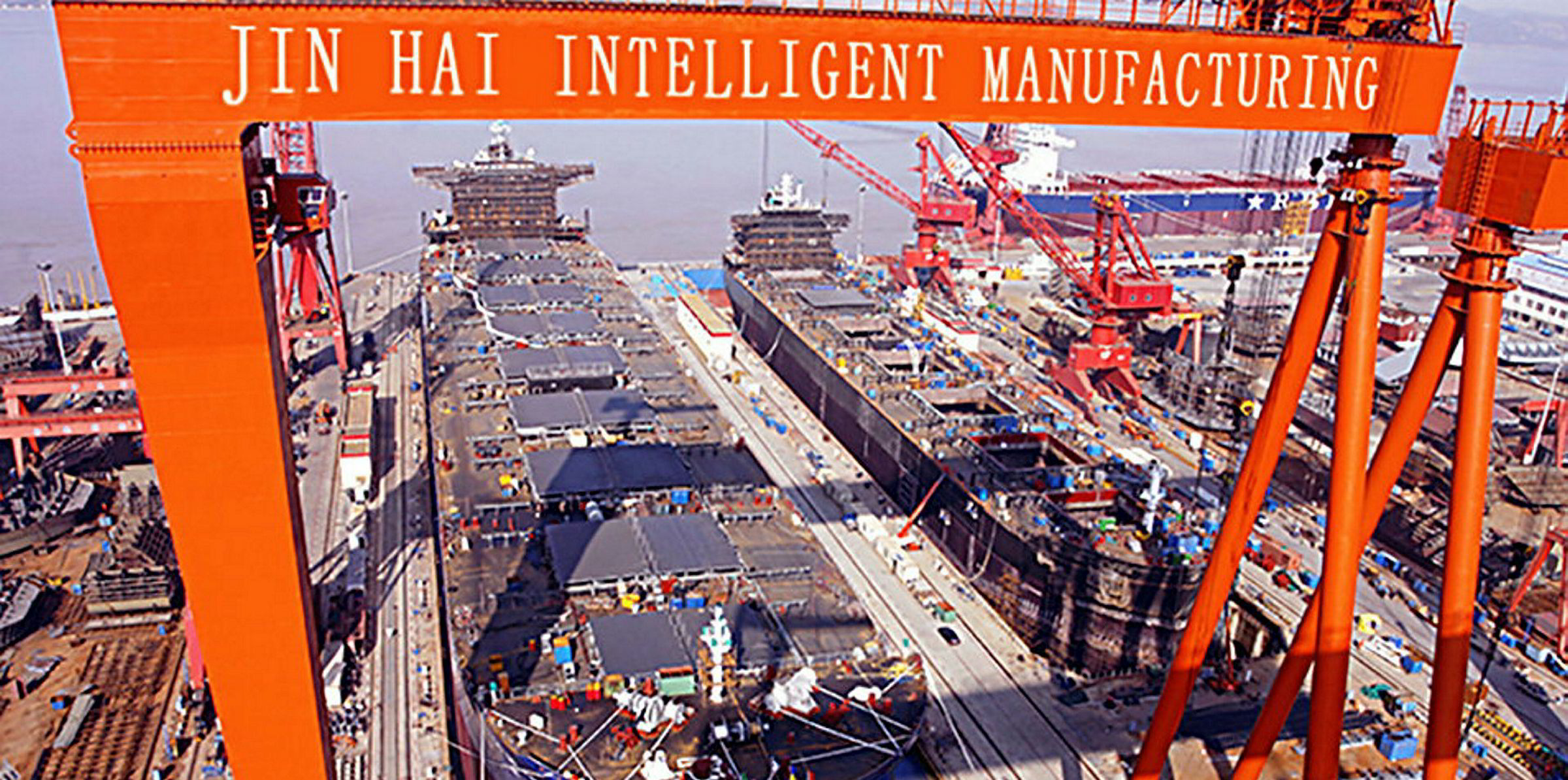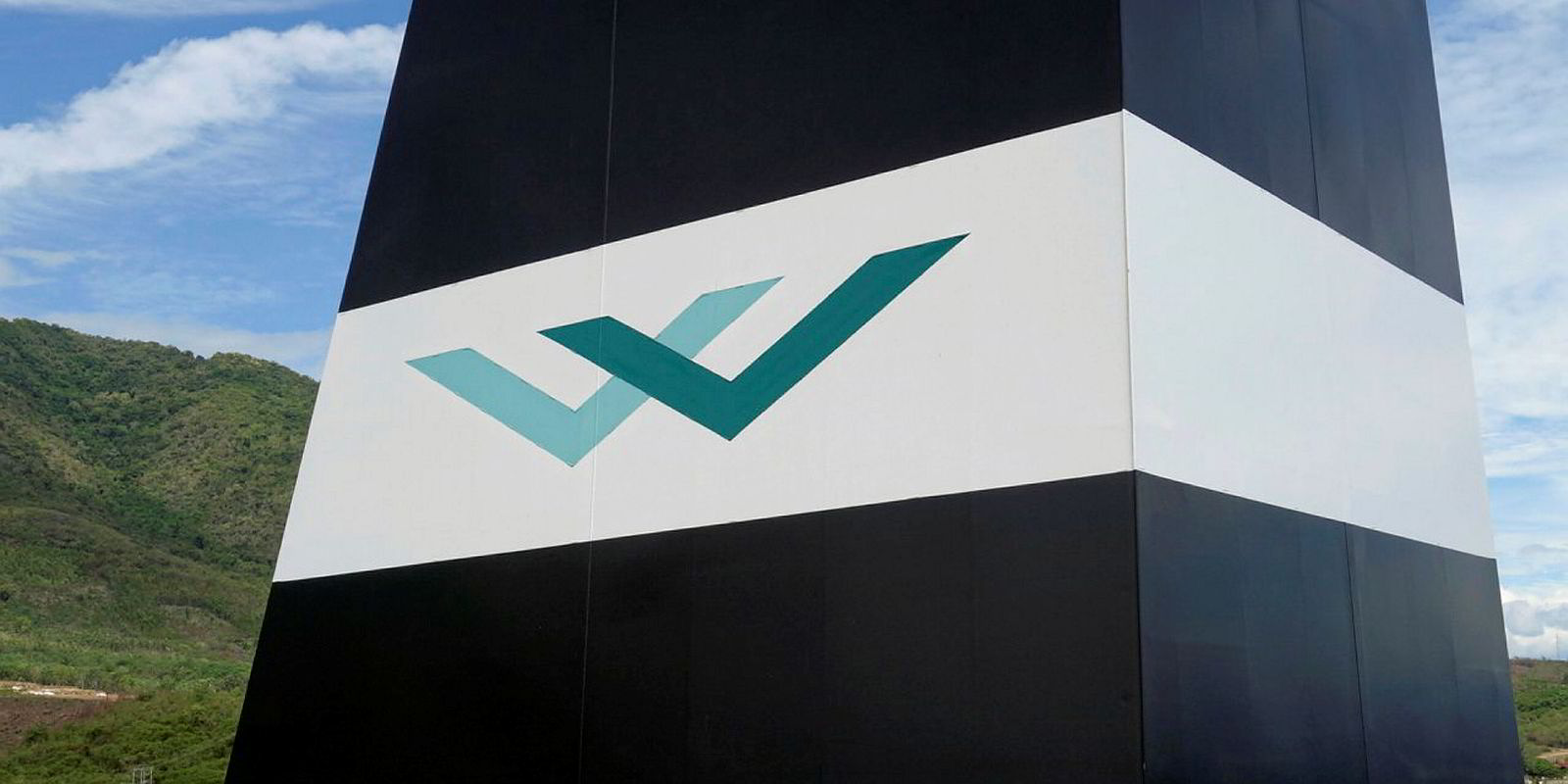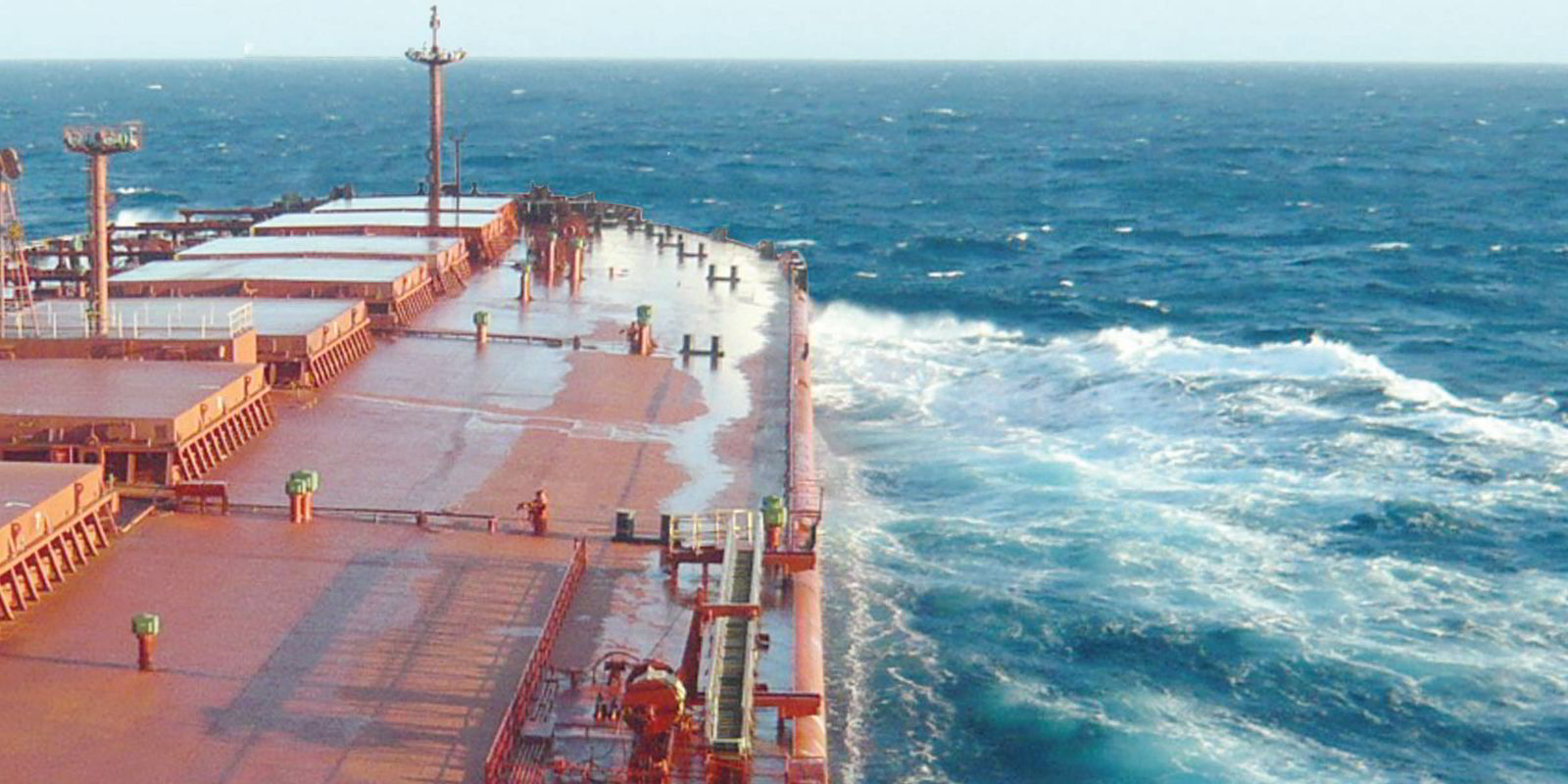The future of Jinhai’s shipbuilding activities is coming under intense scrutiny as its Chinese conglomerate parent — HNA Group — drives ahead with a massive disposal programme to cut its huge debts.
Jinhai Intelligent Manufacturing, formerly known as Jinhai Heavy Industry, is rumoured to be intending to rundown its business and close once it has delivered the last of its current 10 newbuildings.
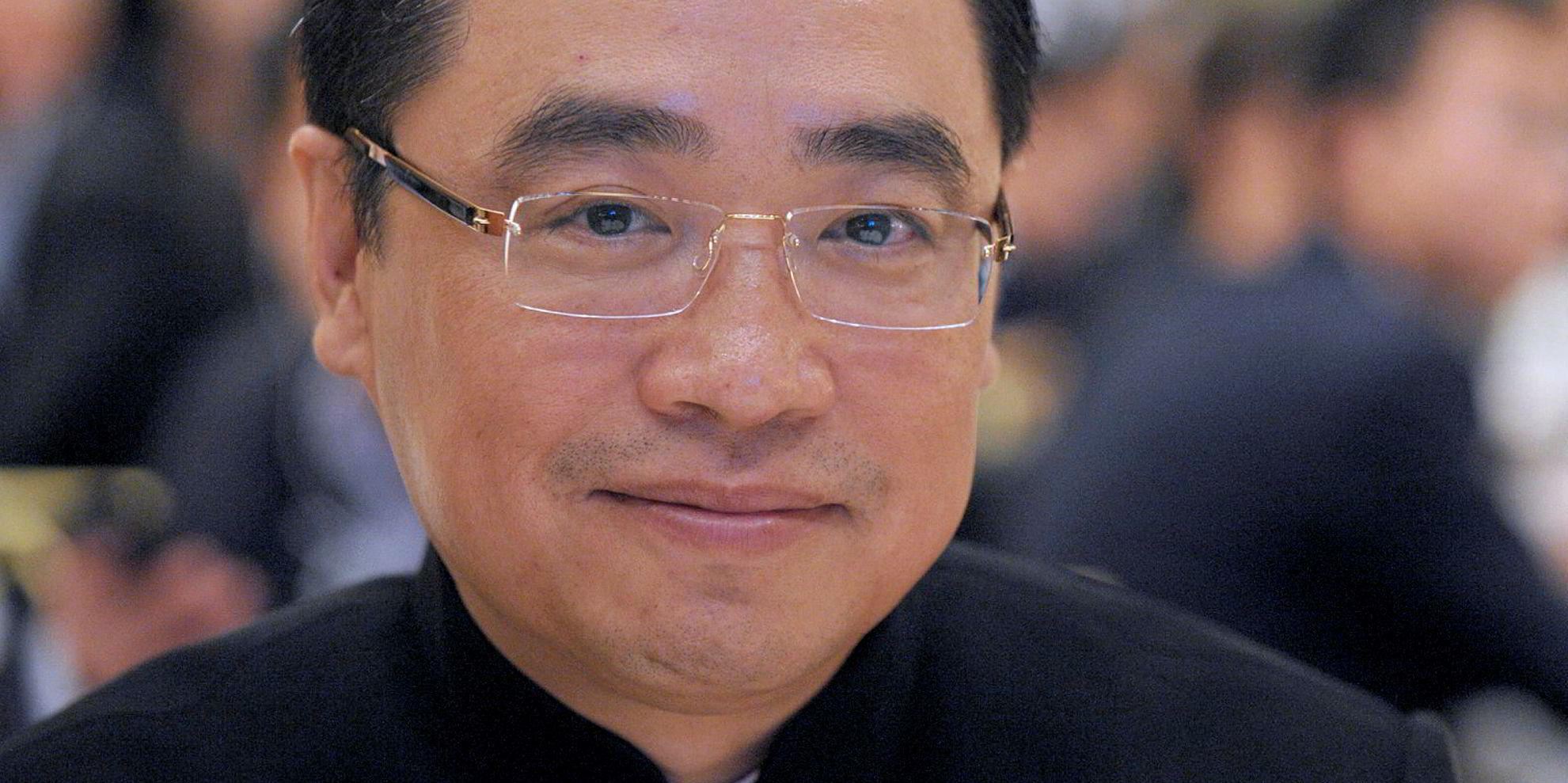
Several shipbuilding players say the Zhoushan-based shipyard is likely to cease operation in 2020 after completing the construction of the vessels currently on its orderbook.
“Jinhai’s parent company, HNA, is in financial difficulty and has problems getting credit lines,” a shipbuilding source said. “It is ditching non-core business such as property, shipbuilding and shipping.”
One newbuilding shipbroker was even blunter: “Jinhai is a certifiable zombie shipyard. It’s long dead, even if it doesn’t recognise the fact itself yet.”
Conflicting closure reports
Possible closure of the shipyard was quashed by one Jinhai executive, who told TradeWinds that the company was still in operation and would continue with its marketing activities.
“There is a lot of news about HNA and much is not true,” the Jinhai executive said. “If our shipyard is closing down, I would be leaving the company, but I am still here.”
Hainan-based HNA became a global player in recent years during a $50bn acquisition spree that included buying large stakes in Deutsche Bank and Hilton Worldwide.
But concerns in Beijing over its near $80bn debt pile have sparked the sell-off of up to $22bn-worth of assets this year alone.
HNA’s disposals of property, financial and aviation assets have been compounded by the death of HNA co-chairman Wang Jian in an accidental fall in France in the summer.
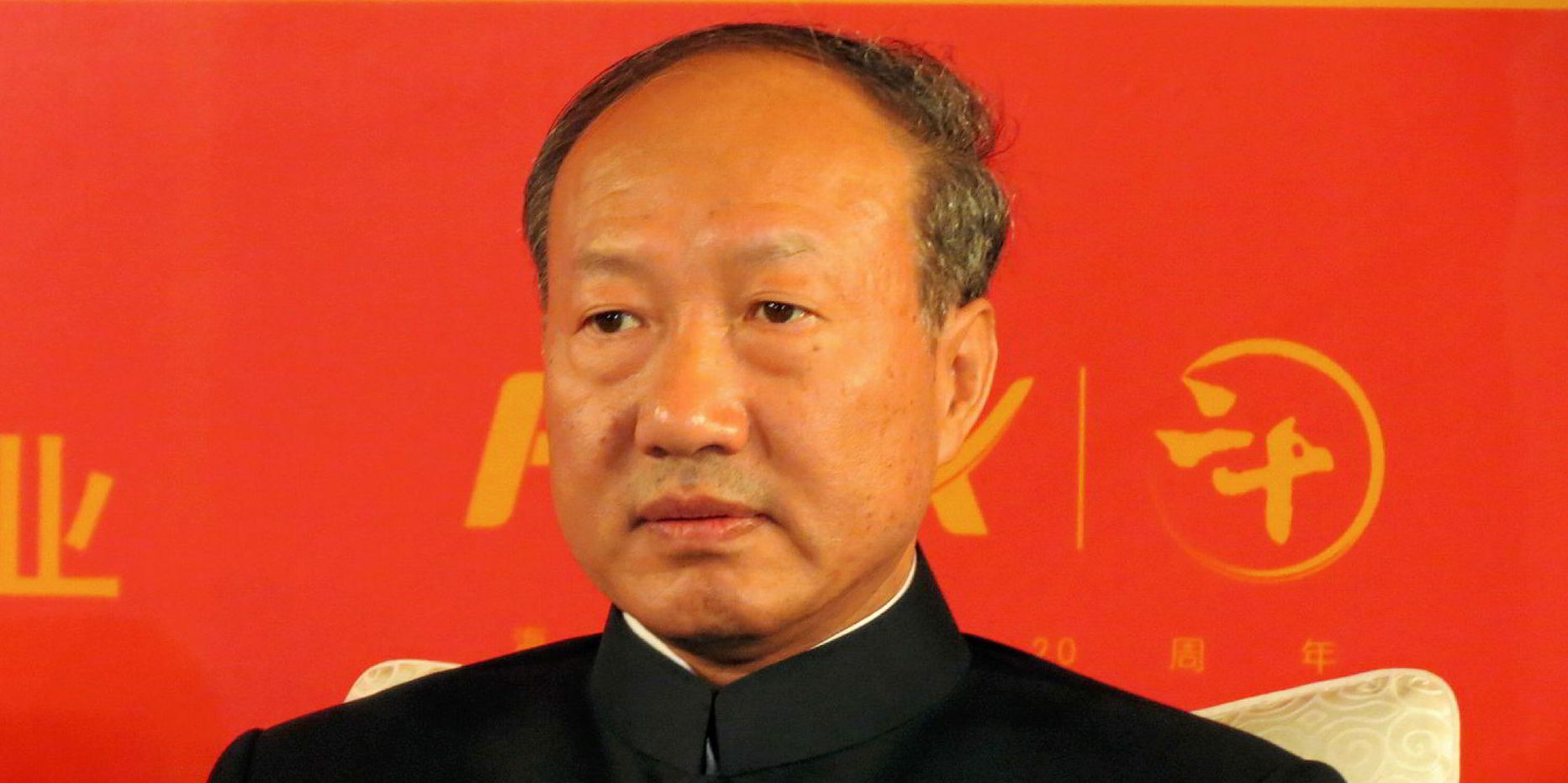
The group’s planned sale of container-leasing business Seaco has reportedly attracted potential bidders, including Japanese financial firm Orix and Bermuda’s Triton International.
“Low newbuilding prices and the poor shipbuilding market are also reasons that have led HNA to let go of Jinhai,” the shipbuilding source said.
Another source who has visited the shipyard described Jinhai as “half dead”, saying almost all activities at the yard appear to have stopped.
According to Clarksons' Shipping Intelligence Network database, Jinhai’s orderbook has only 10 newbuildings, comprising two VLCCs, seven large containerships and one dredger.
The contracts for these were signed between 2013 and 2016.
Separate orders
The VLCCs were ordered by HNA, while the boxships were placed by its subsidiary, Sinoceanic Shipping. The dredger was booked by a domestic company called Shenzhen Dachan Island Group.
In 2017, Raffles Shipping — the shipping arm of Singapore’s Wilmar International — contracted Jinhai to build two firm, 19,700-dwt, IMO type 2 chemical tankers for delivery in early 2019. The deal included four options.
Jinhai is a certifiable zombie shipyard. It’s long dead, even if it doesn’t recognise the fact itself yet
Shipbuilding players say the contract did not materialise because Jinhai failed to secure refund guarantees for the vessels.
The Raffles newbuilding deal was aborted because the price of the chemical tankers was too low, according to a Jinhai executive who declined to be identified.
In May, South Korea’s Sinokor Merchant Marine was reported to have placed a firm order for four newcastlemax bulkers at Jinhai, plus 16 options at less than $50m each.
However, shipbuilding players say the Sinokor contract did not come into force. Jinhai executives claim the deal is still live and the two companies are currently working on the design of the vessels.
Jinhai was established in 2006 during the shipbuilding boom by businessman Huang Shang Nian under the name of Jinhaiwan Shipbuilding Group.
Grand China Shipping, the shipping arm of HNA, started investing in Jinhaiwan after the global financial crisis and the collapse of Lehman Brothers.
By 2009, HNA had become the shipyard’s major stakeholder controlling a 70% stake.
Grand China first renamed the yard Jinhai Heavy Industry and, last August, changed that to Jinhai Intelligent Manufacturing.
